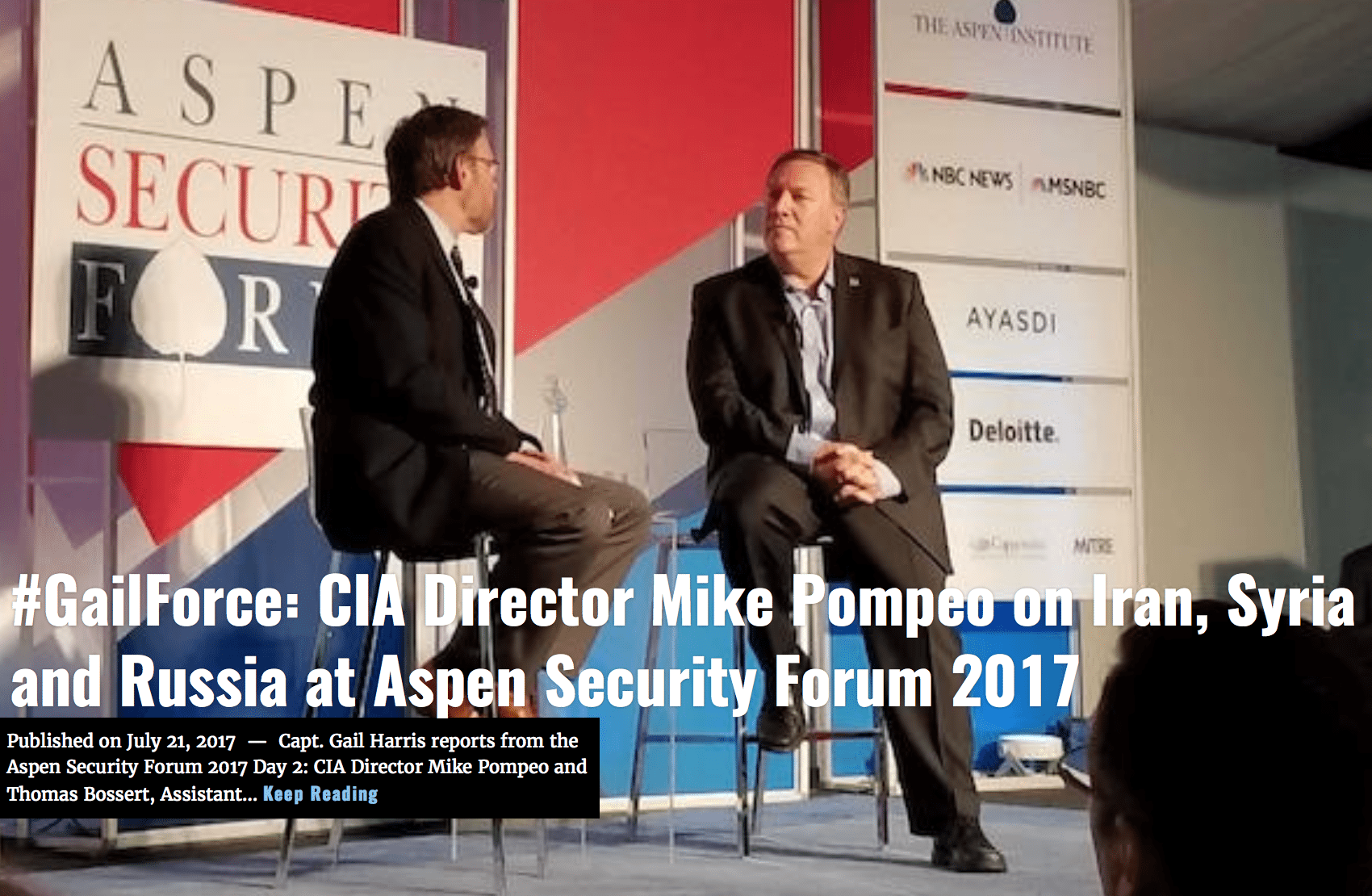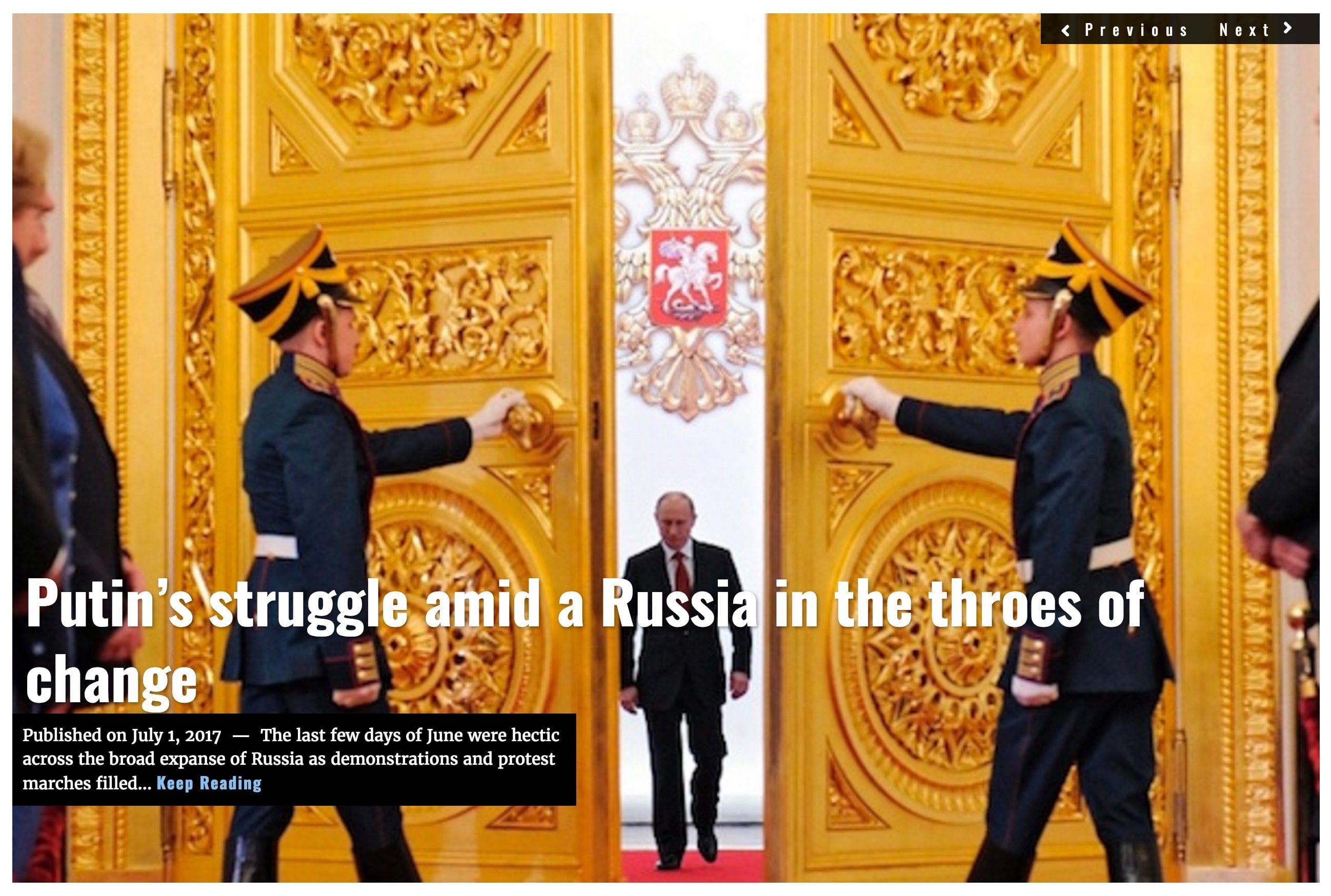On Monday, January 29, the Trump administration reached a deadline to respond to Russian aggression in eastern Ukraine and Russian efforts to interfere in the 2016 U.S. presidential elections. The administration’s response, serving as a political Rorschach test, has sparked various reactions across the political spectrum.
Last summer both chambers of Congress passed The Countering America’s Adversaries Through Sanctions Act (CAATSA) with bipartisan veto-proof majorities. CAATSA was begrudgingly signed by President Trump on August 2nd. In a statement released later in the day by the White House, President Trump emphasized that “America will not tolerate interference in our democratic process” and that he was signing the bill “for the sake of national unity” even as he lamented the fact that the bill “encroaches on the executive branch’s authority to negotiate.”
As stipulated by Section 241 of the bill (“Report On Oligarchs And Parastatal Entities Of The Russian Federation”), the Treasury Department was mandated to release a list identifying “the most significant senior foreign political figures and oligarchs in the Russian Federation, as determined by their closeness to the Russian regime and their net worth.”
While the intent of the list was to “name-and-shame” those who had built their wealth through corrupt practices, it appears that the effort was abandoned in order to produce a list that would not further aggravate already tense relations between Washington and Moscow. President Trump’s domestic critics were further incensed when a Buzzfeed reporter speaking to a Treasury Department spokesperson confirmed reports that the document was largely a reproduction of Forbes’ ranking of the “200 richest businessmen in Russia 2017.”
Treasury's reliance on Forbes comes off as sloppy & amateurish… unless, the intention was to cause as little diplomatic strain as possible through an obviously slapdash report. Russian elite already laughing it off as a copy of the "Kremlin's phonebook" https://t.co/mQs0TjMNuM
— John Hudson (@John_Hudson) January 30, 2018
In section 224 of the bill (“Imposition Of Sanctions With Respect To Activities Of The Russian Federation Undermining Cybersecurity”), the State Department was obliged to develop a list of sanctions with which President Trump could penalize anyone who “knowingly engages in significant activities undermining cybersecurity against any person, including a democratic institution, or government on behalf of the Government of the Russian Federation” §224(A)(1)(a). The bill further indicated that anyone who knowingly supported that effort should be penalized with the imposition of five of those sanctions. The sanctions, while outlined in CAATSA here, were essentially 12 financial exclusionary measures of varying strength, which were designed to impact those at the highest levels of the Kremlin.
Despite clear warnings from CIA Director Mike Pompeo, that the Russian effort to interfere in the 2018 U.S midterm elections were well underway, here too, the administration chose not to implement additional sanctions and further inflame tensions with the Kremlin. When questioned about the decision, State Department spokeswoman Heather Nauert estimated that “foreign governments have abandoned planned or announced purchases of several billion dollars in Russian defense acquisitions” indicating that the law already was having a deterrent effect.
This threat is real. US gov’t, including @CIA, has to find ways to fight back. @CIA Director Pompeo on #Russia & US Elections #AspenSecurity pic.twitter.com/HiyG5DFLb7
— The Aspen Institute (@AspenInstitute) July 21, 2017
Domestically, reactions to the administration’s response have fallen along predictably partisan lines.
Senator Bob Corker (R-Tenn.), Chairman of the Senate Foreign Relations Committee, addressed the decision approvingly in a statement, “On the whole, it is clear the administration is working in good faith, and I am committed to applying pressure, as needed, to ensure further implementation.” Yet, his colleague and fellow member on the Committee, Senator Ben Cardin (D-MD.), expressed disappointment “that there has not been a more aggressive use of the law that Congress passed.”
While critics such as Senate Minority Leader Chuck Schumer (D-NY.), lambasted the move on Twitter, questioning “Why won’t @realDonaldTrump use the power given to him by a near unanimous vote in Congress to hold Russia accountable for its blatant transgressions against the American people?”
I am encouraged by the diplomatic steps Secretary Tillerson has taken in recent months to compel other governments to comply with #CAATSA. On the whole, it is clear the administration is working in good faith. My full statement: pic.twitter.com/T4OPLVc0XL
— Senator Bob Corker (@SenBobCorker) January 30, 2018
Senator Susan Collins (R-ME), however, expressed concern, stating, “that is perplexing to me … that bill passed with only two dissenting votes in the Senate. It was not partisan in the least.” Collins added, “the one thing we know for sure already, is the Russians did attempt to meddle in our elections, and not only should there be a price to pay in terms of sanctions, but also we need to put safeguards in place right now for the elections for this year, because we know that the Russians have not given up on their disinformation campaign and their attempt to sow discord in this country and also undermine faith in democratic institutions.”
Sen. Susan Collins says it's perplexing that the White House has not imposed new sanctions on Russia after 98 of 100 senators voted for the sanctions. https://t.co/3EK74SoSPy pic.twitter.com/oGqx0Okzqi
— CNN (@CNN) January 30, 2018
Intelligence experts have confirmed that in recent years Russia has dramatically increased its “active measures” campaigns against the U.S., engaging in a form of political warfare that includes disinformation, propaganda and compromising leaders with bribes and blackmail. This includes efforts to target and influence U.S. military service members and veterans through such tactics as “phishing” and posing as attractive women on social media, or becoming Facebook/Twitter friends with American soldiers to gather intelligence.
Despite President Trump’s apparent effort to maintain a constructive tone in negotiations with the Kremlin, not everyone in Moscow appreciated the effort. Addressing the ‘oligarch list,’ Konstantin Kosachyov, a member of Russia’s Duma and the Chairman of the Federation Council’s International Affairs Committee, claimed “the effects are extremely toxic and will upset cooperation prospects for years to come.” That being said, while Vladimir Putin called the list an “unfriendly act” he pragmatically added that the Kremlin would indeed refrain from retaliating.
LIMA CHARLIE NEWS, with Sean McNicholas
Lima Charlie provides global news, insight & analysis by military veterans and service members Worldwide.
For up-to-date news, please follow us on twitter at @LimaCharlieNews
In case you missed it:

![Image Trump refusal to sanction Russia despite bi-partisan mandate 'perplexing' [Lima Charlie News]](https://limacharlienews.com/wp-content/uploads/2018/02/Trump-refusal-to-sanction-Russia-despite-bi-partisan-mandate-perplexing.jpg)


![Image Russia's energy divides Europe [Lima Charlie News]](https://limacharlienews.com/wp-content/uploads/2019/03/Russias-energy-divides-Europe-Lima-Charlie-News-480x384.png)
![Image When your allies prefer to buy Russian arms - America’s growing headache [Lima Charlie News]](https://limacharlienews.com/wp-content/uploads/2018/08/When-your-allies-prefer-to-buy-Russian-arms-America’s-growing-headache-0001-480x384.png)
![Image #GailForce: U.S. Intelligence community confirms ongoing Russian 'malign influence' operations at Aspen Security Forum [Lima Charlie News]](https://limacharlienews.com/wp-content/uploads/2018/07/GailForce-U.S.-Intelligence-community-confirms-ongoing-Russian-malign-influence-operations-at-Aspen-Security-Forum-480x384.jpg)

![Israel-Hamas Cyberwar, when old warfare meets new [Lima Charlie News]](https://limacharlienews.com/wp-content/uploads/2019/05/Israel-Hamas-cyber-warfare-01-e1558501438770-480x384.jpg)
![Image GailForce: Blinking Red - Cyber War and Malign Influence Operations Today [Lima Charlie News][Graphic: Lima Charlie News]](https://limacharlienews.com/wp-content/uploads/2018/08/GailForce-Blinking-Red-Cyber-War-and-Malign-Influence-Operations-Today-Lima-Charlie-News-01-480x384.png)
![Image Intelligence Community mobilizes for Cyber War with Russia [Lima Charlie News][Photo: Mark Wilson]](https://limacharlienews.com/wp-content/uploads/2018/08/title-asldkfj-480x384.jpg)
![Image Singapore Summit leaves North Korea cyber threat off the table [Lima Charlie News]](https://limacharlienews.com/wp-content/uploads/2018/06/Singapore-Summit-leaves-North-Korea-cyber-threat-off-the-table-Lima-Charlie-News-480x384.png)
![Image Russia's energy divides Europe [Lima Charlie News]](https://limacharlienews.com/wp-content/uploads/2019/03/Russias-energy-divides-Europe-Lima-Charlie-News-150x102.png)
![Image When your allies prefer to buy Russian arms - America’s growing headache [Lima Charlie News]](https://limacharlienews.com/wp-content/uploads/2018/08/When-your-allies-prefer-to-buy-Russian-arms-America’s-growing-headache-0001-150x100.png)